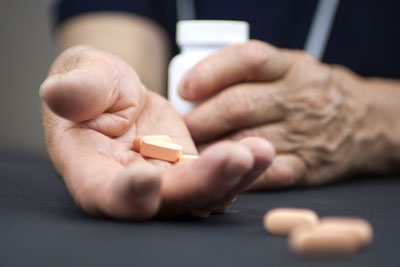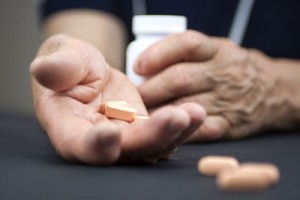Data for Celltrion’s biosimilar infliximab CT-P13 presented at EULAR 2015
Posted: 10 June 2015 |
Data presented at EULAR 2015 show that the effectiveness of Celltrion’s biosimilar infliximab was similar to the RMP in rheumatoid arthritis…


The comparable safety and efficacy of switching patients to a biosimilar anti-TNF-α monoclonal antibody from the reference medicinal product (RMP) has been further established in data presented at EULAR 2015, the annual meeting of the European League Against Rheumatism.


Data from abstracts published or presented at the conference show that the effectiveness of Celltrion’s biosimilar infliximab CT-P13 was similar to the RMP in rheumatoid arthritis (RA) and ankylosing spondylitis (AS) patients who were switched from the RMP to the biosimilar infliximab, with no additional safety signals.
Similar immunogenicity between biosimilar infliximab and the RMP in patients with RA and AS was also demonstrated in another study presented at EULAR 2015. Professor Jürgen Braun, Professor of Rheumatology at the Free University Berlin and the Ruhr University Bochum, Germany, and lead author of the immunogenicity study, concluded that “no immunogenic difference between biosimilar infliximab and the RMP was found in two studies of patients with RA or AS.”
A cost-effective treatment option like biosimilar infliximab will help to decrease the current and extensive burden on healthcare systems across Europe
In a study, 39 RA and AS patients were switched from the RMP to biosimilar infliximab after a mean of 4.1 years of treatment with the RMP. After a median of 11 months following the first administration of biosimilar infliximab, patients’ symptom levels (pain, fatigue, patient global health) and disease activity (doctor global assessment of activity, Health Assessment Questionnaire, and erythrocyte sedimentation rate and C-reactive protein levels) were clinically assessed. The effectiveness of biosimilar infliximab appeared similar to the RMP in patients who switched from the RMP to biosimilar infliximab and no immediate safety signals were observed.
A retrospective analysis for factors related to immunogenicity was performed using data from the PLANETRA and PLANETAS studies, which have previously demonstrated the biosimilarity of CT-P13 to its RMP. Data from the 852 patients (602 RA and 250 AS patients) in the studies showed similar immunogenicity results during the study period in both trials. The only statistically significant influencing factor was age in the PLANETRA study. Concomitant medication (methotrexate/glucocorticoid) did not appear to have an impact on ADA formation.
Dr Stanley Hong, President and CEO of Celltrion Healthcare, said, “Once again we see clinical evidence demonstrating the safety and efficacy of biosimilar infliximab and supporting the switchability of the treatment. A cost-effective treatment option like biosimilar infliximab will help to decrease the current and extensive burden on healthcare systems across Europe. These financial pressures can lead to rationing of biologic medicines like anti-TNFs for the treatment of devastating conditions like rheumatoid arthritis and ankylosing spondylitis. We are proud that biosimilar infliximab is available for patients across the European Union, offering them a more accessible treatment option to manage their disease.”
A meta-analysis of the safety data for biosimilar infliximab and its RMP showing that the safety profiles of both drugs in patients with RA and AS are consistent has also been reported at EULAR 2015.




